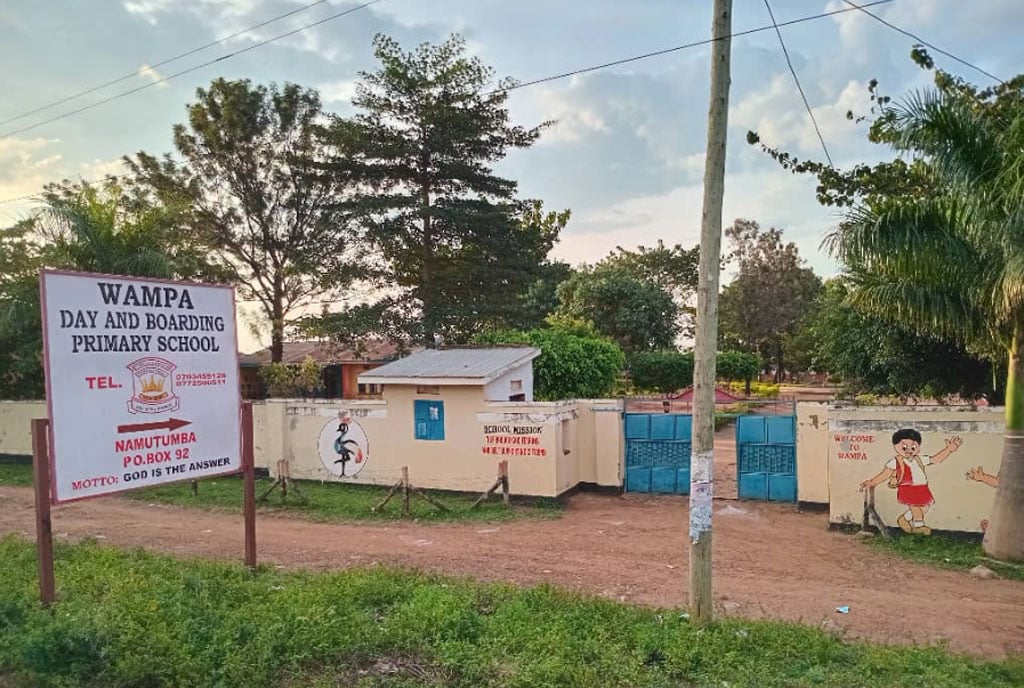Prime
How Tororo childless women are fighting stigma

Officiating. State minister for Health for General Duties Sarah Opendi (2nd left) and the CEO Merck of foundation, Prof Frank Stangenberg (2nd right), with a group childless women in Tororo District last Friday. PHOTO BY JOSEPH OMOLLO
What you need to know:
- In vitro fertilisation is a process of fertilisation where an egg is combined with sperm outside the body. The minister says when the facility is operationalised, the cost for services will be subsidised.
- Ms Sarah Apadet Okumu, the association coordinator, says the challenges faced by barren women, especially in the rural areas, are overwhelming.
Ms Judith Okoth was last year abandoned by her husband after years of failing to get pregnant.
“He abandoned me after nine years of our marriage because I could not give him a child he needed dearly,” Ms Okoth, 35, says in a low tone with eyes full of tears.
She says she had tried all means, from providence to using herbal medicine to conceive in order to save her marriage but in vain. Besides that, the pressure from husband’s relatives kept on mounting each passing day.
“I was subjected to untold discrimination and backbiting by my in-laws. I don’t know what I can say but it was hell on earth,” she says.
Ms Okoth is just but one of the numerous childless women who are subjected to isolation, disinheritance and other forms of unfair treatment due to inability to bear a child.
Ms Joan Akhisa, 65, another victim and a resident of Mukuju Sub-county, says she separated with her husband in 1988 after she failed to conceive.
“We had even constructed a commercial building together but after a long time without conceiving, he chased me away and for the last 27 years I have been staying with my relatives,” she narrates.
Merck More Than a Mother is an association with more than 500 members that brings together infertile women in Tororo District.
Ms Sarah Apadet Okumu, the association coordinator, says the challenges faced by barren women, especially in the rural areas, are overwhelming.
“They suffer discrimination, stigma and ostracism especially those in rural settings, where a married woman is expected to get pregnant as fast as possible within one year of marriage,” she says.
Ms Okumu says through the women’s association, they have partnered with Merck Foundation, a German based organisation to champion advocacy and awareness on infertility in women.
“We believe this will help to fight stigma and discrimination against women. Sometimes the problem is not with women as the community tends to believe. It might be a man who has failed to impregnant the woman,” she says.
Besides championing advocacy, Ms Okumu says the women have also been empowered with skills, knowledge and finance to start up income generating projects.
“Since most of them have been chased away, starting income generating projects would help them to keep on moving with life,” she adds.
Ms Sarah Opendi, the Tororo District Woman MP, who doubles as the State minister for Health, during her visit to the women group last Friday, applauded them for uniting to advocate for their rights.
“It’s sad to note that most of your marriages are not stable, your husbands and some of their relatives call you all sorts of names but I am happy that you have stood your ground,” she said.
The minister, however, challenged men to also test for fertility before they entirely push the blame on women.
“Research has shown that 50 per cent of infertility cases are attributed to men, not women. I therefore encourage men to ensure that they go with their spouses for medical tests in case such situations emerge,” she says.
Mr Pius Owin, a resident of Makuju Sub-county, says he married more 27 women but failed to impregnant any.
“I tested and found out that it is me who with a problem not the women, so I urge my fellow men not to overreact when such things happen,” he advises.
Dr David Okumu, the Tororo District health officer, however, appeals to government to consider allocating resources to facilitate treatment of factors that aid infertility.
Government efforts
“The big number of women with infertility problems are not happily married and this calls for a quick intervention,” he says.
According to Ms Opendi, government is concerned about the infertility cases and has taken an initiative to construct and equip Mulago Women’s fertility hospital that will provide Invitro fertilisation technologies that enables infertile mothers to bear children.
In vitro fertilisation is a process of fertilisation where an egg is combined with sperm outside the body. The minister says when the facility is operationalised, the cost for services will be subsidised.
The chief executive officer for Merck Foundation, Prof Frank Stangenberg, says the organisation is committed to championing a campaign to fight stigma and offer psycho-social support among Ugandan infertile women.



